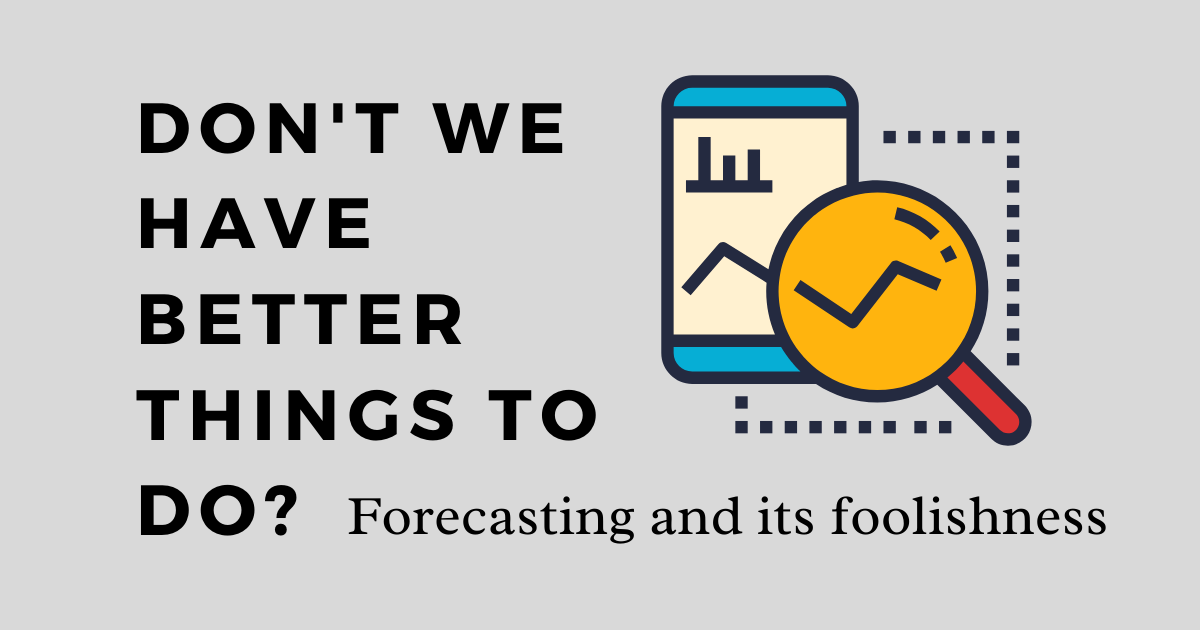In a former life, I wrote a blog called “Obvious Insights,” that had a readership of about seven. In it, I reported on the major economic releases of the week ahead and commented on those of the past week. I had a front row seat to what I now recognize is the folly of forecasting. Each week, economists spend countless hours and brain cells estimating economic indicators. These indicators include everything from weekly Initial Jobless Claims to the monthly Nonfarm Payrolls report to the quarterly iterations of Gross Domestic Product. While some individual estimates would be accurate, the consensus forecast was almost always off the mark.
The April 1 issue of Bloomberg Businessweek included the story, “Why Are Economists So Bad at Predicting Recessions?” The article cites research published in February 2019 that showed that, “of 469 downturns since 1988, the International Monetary Fund had predicted only four by the spring of the preceding year.” Private sector economists don’t have a better record, either.
The article suggests four reasons for the lousy batting average:
- It’s simply hard to do. Data arrives with a lag and is incomplete. Sharp turns are common and unpredictable. Whoever said that, “predictions are difficult, especially about the future,” seems right on.
- Most economists don’t have money riding on their forecasts, per se, “unlike portfolio managers.” To my mind, the latter group doesn’t have a stellar forecasting record, either, incentivized though they may be.
- “Groupthink may also pose an obstacle,” as it’s safer if one’s estimate is within the range of the herd of economists.
- Someone famous—John Maynard Keynes is a popular choice—once said that he changed his mind when new information was available (“what, sir, do you do?”). Economists and other forecasters tend to ignore new information that disagrees with their forecasts. This is the ever-present confirmation bias. Learn more about confirmation bias here.
The trouble is that, while economists may not have money riding on their calls, others (hint: investors) might. The quasi-celebrity economist who speaks to a luncheon group may sound bright enough to influence the investment posture of attendees. This may possibly lead to inordinate caution or optimism.
Over the years I have developed the annoying trait of saying, “I don’t know,” when clients or others who know of my profession ask what I expect of the coming year. “No, really,” they say, “come on…” But I really don’t know. To pretend that I do or anyone else does is disingenuous and may do a disservice to the one asking.

